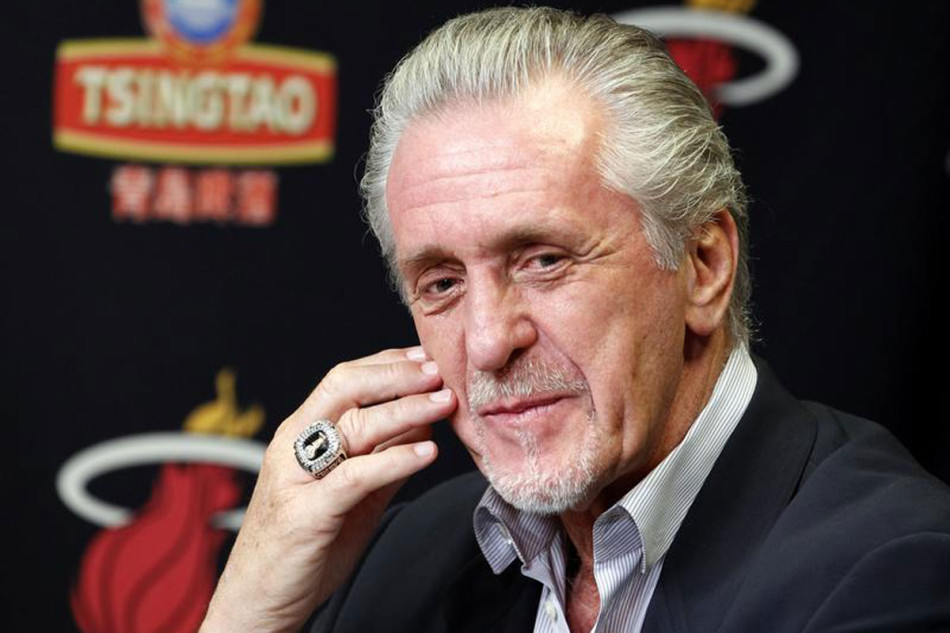When the Miami Heat traded up in last year’s draft to select Shabazz Napier, it raised many eyebrows. Not only because they moved up in the first round to select a player that was widely regarded as a second round talent, but more importantly, after leading his team to an NCAA championship, Napier received a ringing endorsement from Miami’s LeBron James, the center of the basketball universe.
So when Miami made the selection undoubtedly solely to please James, no one batted an eye. After all, what better way to use a first round pick than to appease the best player in the game? Three days after the draft, Dwyane Wade announced he was opting out of his remaining 2-year/$41 million contract, seemingly to free up money to re-sign James, and fellow RFA Chris Bosh. Nevertheless, Napier’s selection and Wade’s decision seemed to indicate the King was staying in Miami. Of course we all know how the story goes, James spurns Pat Riley and the Heat to join Cleveland—Cavs go to the Finals and Heat miss the playoffs.
Napier didn’t exactly make a splash last season either; he played in 51 games averaging just 5.1 PPG. He spent the majority of the season playing behind Mario Chalmers and Norris Cole; and when Cole was dealt last February in a trade that brought Goran Dragic to Miami, it appeared Napier’s future in Miami was in doubt.
When Miami traded Napier earlier this week, it quickly closed a chapter in a book the Heat most likely wish they never opened. Proponents of the Heat will quickly point out that trading Napier to the Magic saved the team close to $4.5 million in salary and luxury taxes, but that’s just putting a positive spin on a pick the team should’ve never made. In reality, the Heat would’ve been better off if their 2014 first round pick vanished into thin air—at least that would’ve saved them more than they ultimately gave up to acquire Napier.
Let’s start on June 24th of last year. The Heat, nervous if they were unable to select Shabazz Napier could lose the greatest small forward of all-time (crazy logic, I know), felt it necessary to move up. Ultimately, they traded their own first round pick (26th overall pick P.J. Hairston), a 2014 second rounder, a 2019 second rounder, and cash for Napier. Then, on Monday, the Heat unloaded Napier and even more cash to the Magic for a heavily protected second round pick that has absolutely ZERO chance of materializing (Orlando would have to finish next season with a top five record to convey the pick).
In conclusion, the Heat gave up a first-round pick, two second-round picks, cash and more cash for nothing. I’m not saying Shabazz Napier’s nothing—but they don’t have him anymore, and they don’t have any of those picks either.
So how does this then happen?
What?!? We’re not only giving Pat Riley a mulligan on last year’s draft but we’re praising his expertise? Joseph Zapatelli writes…
“How this Napier trade impacts the Heat’s future moves is unclear, but as of right now, this looks like one of many clever moves Pat Riley has conducted this offseason in hopes of making the Heat a legitimate contender for an NBA title.”
“The Miami Heat have agreed to trade Shabazz Napier to the Orlando Magic in exchange for a future second round pick and, while the deal may not look like much at first glance, this trade could prove to be another shrewd move orchestrated by the Godfather himself, Pat Riley.”
Let’s be clear. Riley is building this team to win now. In fact, right after completing the Napier trade, Riley sent Zoran Dragic to Boston along with a 2020 second round pick and $1.5 million in cash for another heavily protected second round pick that most likely will not convey, once again to save money on luxury taxes. As Ira Winderman points out, the Heat certainly will not be looking to build through the draft soon.
“The trade with the Celtics put the Heat even deeper into draft debt, the Heat now owe a future first-round pick to the Philadelphia 76ers (likely 2016) from the 2010 LeBron James sign-and-trade with the Cleveland Cavaliers; a pair of future first-round picks to the Phoenix Suns (likely 2018 and 2021) from last season’s acquisition of the Dragics; a 2016 second-round pick to the Celtics from the 2014 Joel Anthony salary dump; a second-round pick to the Atlanta Hawks (likely 2017) from the Ennis draft-night acquisition; a 2019 second-round pick to the Minnesota Timberwolves from the 2014 draft-night draft with the Charlotte Hornets to acquire Napier; and now this 2020 second-round pick.”
The Heat are not due any future draft picks from other teams in either round.”
If the Heat believe it’s wise to abandon the draft and build a team through trades and free agency, good luck to them! I recall the Knicks trying to do the same thing, trading away picks for a combination of guys in their 30’s and cap space; and we all know how that worked out. But let’s not get crazy praising Pat Riley for trading a guy he never should’ve traded for on draft night solely to avoid paying taxes. Napier was not a good pick and depleting cash and future draft picks just to acquire him and then trade him one season later was not an “expert” move.








